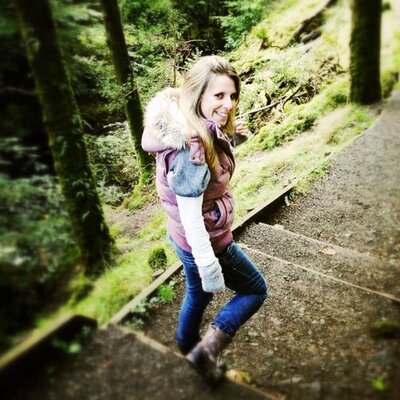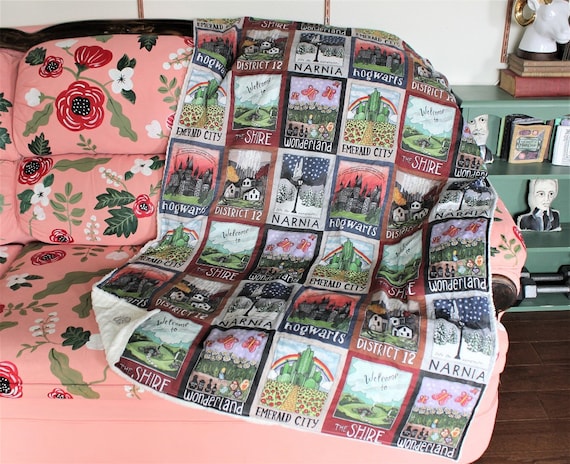The Names They Gave Us - Emery Lord |
When it all falls apart, who can you believe
in?
Everything is going right for Lucy Hansson, until her mom’s cancer reappears.
Just like that, Lucy breaks with all the constants in her life: her do-good
boyfriend, her steady faith, even her longtime summer church camp job.
Instead, Lucy lands at a camp for kids who have been through tough times. As a
counselor, Lucy is in over her head and longs to be with her parents across the
lake. But that’s before she gets to know her coworkers, who are as loving and
unafraid as she so desperately wants to be.
It’s not just new friends that Lucy discovers at camp—more than one old secret
is revealed along the way. In fact, maybe there’s much more to her family and
her faith than Lucy ever realized.
I won’t lie: my
expectations weren’t all that high for this book. I read When We Collided recently and was disappointed but The Names They Gave Us, the new book
from Emery Lord, resonated with me, in ways I wasn’t quite prepared for.
It’s
about a girl called Lucy, she’s a Christian, heavily involved in her Church –
her Dad is a pastor – and spends every summer at the Church camp her parents
run. Her faith is a part of her, a deeply ingrained part of who she is and then
her Mum gets diagnosed with cancer and her faith begins to waver and the book,
basically, is an exploration of that: of faith, of the lack of it, of grief and
loss and growing up.
& it’s
good.
So, what
particular chord did it strike with you Josephine, I hear you ask. Well. Ain't that the question, and I'll try to answer without being all ME ME ME, but because it impacted on my experience of the story and feels kind of relevant. So. 15
years ago I would have classed myself as religious. Now, not so much. Back then, I went to Church every
Sunday, of my own volition; my Dad isn’t particularly religious and my Mum,
although she doesn’t go to Meeting, is a Quaker. Church was my thing. My place.
Being a teenager wasn’t my favourite experience for a lot of reasons and Church
was a place I could leave all that behind. A group of people that seemed to
accept me with no questions. It was a fellowship I guess in the truest sense of the word.
& I believed. I did. God was there for me and I loved Him. I chose to get
baptised as a teenager, and then confirmed and my faith felt unwavering, like
it would always be, like a constant. Like breathing.
Then, when I
was 22 my partner died. He had cancer and it was shit and horrible and awful
and it changed me. It changed me I think in lots of subtle ways that I am only
just starting to realise now but most significantly at the time and most obviously (to me
at least) it knocked my faith. It’s not that I instantly stopped believing in
God, more that I was really fucking angry
with Him, because why? WHY? I’d been good and I’d done the things he wanted
and I had prayed, I had prayed so hard
and John had died anyway and where the fuck was the justice in that, and if God
was the kind of God that could pull that kind of a stunt, well I wasn’t sure I
wanted any part of Him. I went to Church a few weeks after it all happened and I sat at the
front with my pals and the guy leading the prayers, he prayed for me. I cried.
I cried because I was sad, and I cried because once upon a time that would have
helped and now all of a sudden I just felt hollow, like there was this void
where my faith used to be and then he prayed for my tears and I just sat there
thinking ‘why am I even here?’
& it
doesn’t work like that for everybody, I know that: a lot of people find their
faith strengthened by loss and that’s brilliant, but mine wasn’t and that truth
is something I haven’t thought about for a long long time. It surprised me
actually, the almost visceral reaction I got to Lucy’s story when I read this
book. That ‘yes, I get that.’ It’s
weird when you realise that something you thought was perhaps isn’t and I really felt for Lucy because yak.
So there’s that
element: faith, which is really well done actually, Lucy’s anger at God, her
struggle to feel removed from something that has been a key part of who she is
her entire life, her religious upbringing, all of it. It’s very well done and I
liked it also because it’s different. Religion like that isn’t a thing that you
see all that often in contemporary novels and I liked that it was tackled here:
this story felt like something new, you know? It was really well pitched as
well, never for a moment crossing over into preachy.
Then there’s
the other stuff – the fact that Lucy’s Mom is sick and her boyfriend has dumped
her – or rather he’s paused their relationship because he’s apparently an
asshat - and she’s been sent to what she always called ‘the hippie camp’ instead
of her own Church camp for the summer where she knows nobody and has no idea
where to fit in. She’s got a lot going on this kid, and it all felt really
honest and real and relatable to. The story felt real, Lucy felt real, all the
characters felt real. Seriously, this book is such a far cry from When We Collided that I actually would
not be surprised if I realised I’d made a mistake and they weren’t actually
written by the same person.
There’s
diversity which we all want to see more of in all the books we read: a trans
character whose story is handled delicately and sensitively and several POC
characters - an excellent exchange
actally between Lucy and one of the other counsellors (surely I don’t have to
tell you not all black people are related) and I really liked how none of this
felt like Lord was working her way down a tick box (LQBT, done; race, cracked
it) it felt genuine and the interactions felt genuine to, not too perfect, not
too text book, but sort of honest somehow. It would be nice to see that
diversity more often and I hate that it’s still a thing we feel we need to
comment on instead of just a thing that just is. Regardless, Lord hits the mark
more than a lot of other people out there.
There’s a
romance, because isn’t there pretty much always
a romance but it’s one that’s so far removed from the one in When We Collided that made me want to
throw the book against the wall that I wanted to punch the air ‘YOU NAILED
IT EMERY’ and a whole lot of delicious self discovery and lots of talk about
food (which was also the same in When We
Collided and which I liked then also, and I liked the whole thing a whole lot. There’s a
lot of love in this book – friendly love, romantic love, familial love, and
perhaps that’s part of the reason it worked better for me, that the romance
meanders nicely alongside the rest of the story rather than being primarily A
Love Story, I don’t know.
What did I not
like? The ending. I am still aggravated by that days later and also I saw the
plot twist coming about seven million miles off (but that might because I am
like plot twist Poirot) but overall, I liked this. I’m glad I gave Lord another
chance. S’worth your time this book. It’s nice. Also they eat cookies at camp in
the first week, chocolate chip, oatmeal and crisps. I WANT ME SOME OF THOSE
COOKIES.






